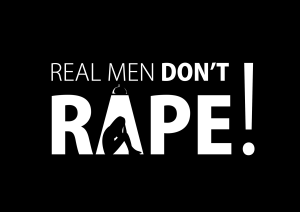Although it feels like a long time ago, it’s only about a decade since the major news story about Brad Pitt and Angelina Jolie was “Angelina stole Brad from Jennifer!”
I remember their three faces being everywhere on the news, and I remember a lot of people being outraged and furious. Nearly always, the fury was directed not at Brad, who had left one woman for another, but at Angelina.
Popular media worked hard to stoke this fire, with images contrasting the two women and headlines like “Jennifer furious at Angelina.” While the two women involved had very little to say about each other in public, the “Angelina vs. Jennifer” narrative was so overwhelming that ten years later, it’s still being used for humor.
This story points to a common tendency: When one woman is cheated on or left for another woman, we tend to heap blame on the new woman, as much as (or more than) we blame the person who did the cheating or leaving.
This also happens with other gender configurations, but the dynamics are different. When it’s two men on the sides of the love triangle, we get into male competition and the expectation of loyalty to a “bro code.” And when the partners are different genders, we usually have some biphobia and identity confusion added into the mix.
For today, though, I want to focus on situations where the partners involved are both women, whether the person between them is male, female, or non-binary.
Treating a situation like this as a woman-versus-woman issue is a trap even feminists may fall into.
We may argue that women should show solidarity with other women by not “stealing” their partners. When we do that, though, we’re missing the deeper roots of the “blame the other woman” dynamic.
Let’s dig down to some of those roots and see why blaming the other woman is deeply anti-feminist.
First of all, when we say, “Angelina stole Brad from Jennifer!” what are we saying about Brad? We’re talking as though he’s a passive object, like a wallet that can be grabbed by any unscrupulous passerby.
Pardon me for stating the obvious, but people aren’t wallets. People can’t actually be stolen (obviously I’m not talking about abduction, which is a completely different thing). When Jordan leaves Megan for Nicole, Jordan is making a choice about who to be with, and how to go about it.
Jordan is deciding whether to be honest about their feelings. Jordan is deciding that being with Nicole is more important than whatever commitments they’ve made to Megan.
So why are we putting all the focus on Nicole, and talking like she slipped Jordan into her pocket while Megan wasn’t looking?
I want to take a look at three of the big reasons we tend to blame the other woman, and the anti-feminist attitudes that sneak in with those reasons.
Reason #1: We Often Think of Relationships as Property
“He’s taken.” “She’s off-limits.” We use language of property and possession to talk about relationships.
From Valentine hearts that say “Be mine” to threatening “If I can’t have you, nobody can,” we talk as though a lover is something that be won or lost, caught or stolen.
I believe we do this because of the sense of security it gives. You don’t have to continually negotiate your relationship with your toaster: Once you’ve paid the price for it, it’s yours and you don’t have to think about it.
When something belongs to us, we can count on it being there as long as we want to keep it.
The reality of partnership is quite different. A relationship is always a choice, every day. Each person makes the choice to stay connected and invested.
Every day, we can choose whether to be honest, present, and caring toward our partners, or to be detached and self-focused.
Every day, we choose whether to be faithful to the commitments we’ve made (including monogamy, if that’s part of our relationship), or to let them slip.
When we talk about “stealing” someone else’s partner, we let the partner off the hook for the choices they made.
I don’t think that leaving a committed relationship is always the wrong choice. Sometimes it’s healthier to let a relationship go if it isn’t working any more. Sometimes the right decision is to stay and work through whatever struggles you’re having.
Either way, it’s a choice that the partner makes, not something that is forced on them by the presence of another woman.
They need to own that choice, and the people around them need to encourage them to take responsibility for it, rather than focusing on the person who didn’t make any commitments to anybody.
Reason #2: It Plays Into the Temptress Stereotype
There is a long history in Western culture of looking at women as dangerous seductresses that have all of the control. If a woman comes onto a man, he has no choice but to fall prey to her charms.
As a counterpart to this is the idea that men are helpless to control their sexual urges. Therefore, women have to be responsible for making sure men don’t cheat.
Although this concept began with male vs. female stereotypes, the idea that the “other woman” is an immoral temptress can creep into lesbian relationships as well, regardless of the gender presentation of any of the people involved.
Making women responsible for men’s sexual behavior is a key component of rape culture. It’s the same concept that says a woman is “asking for it” if she dresses a certain way.
The truth is that men are perfectly capable of making decisions about who to date and who not to. Just as they are able to hear and understand a woman’s “no,” they are able to turn down an attractive and available woman because it’s more important to them to honor their existing monogamous relationship.
Paradoxically, when we treat our partner as though they’re not the one responsible for remaining faithful to us, we often become more controlling.
If outside forces are able to make them cheat or leave us, then the only way to protect against this is to manage their access to outside forces.
So we may monitor their friendships and work relationships with women. We may get suspicious or jumpy when they’re friendly with an attractive woman out in public.
If other women everywhere are the threat, then we have to block or limit our partner’s access to other women. This, in turn, directly leads to controlling behaviors like telling them where they can go and who they can spend time with.
We may tell ourselves, and them, that we’re just doing it for their own good, because we know they can’t handle temptation. In doing so, we’re treating them like small children instead of like responsible adults. Taken to extremes, this can be emotional abuse.
If instead we fully accept that our partner is the one responsible for staying faithful, then it becomes their job to decide what situations are too full of temptation and what situations are safe.
Reason #3: It Hurts Less
When you’re the one being left, or cheated on, it’s really painful to think that the person you loved made a choice not to be with you.
It’s much easier, instead, to think as though the other person cast a spell that your partner was helpless to resist. Then it’s more like being hit by a force of nature, and less like, “My partner didn’t value me enough to stay with me” or “The other person has something I don’t.”
It’s also easier to be angry with somebody you don’t know.
Even when our partners have behaved terribly to us, we have a long history of love and closeness with them that makes anger difficult and complicated. The other woman, though? That can be simple rage and hatred.
The hurt that we’re trying to avoid, by focusing all our anger and blame on the other woman, is exactly where the healing needs to happen.
It’s the hurt of betrayal from someone we trusted.
It’s the hurt of wondering if we just weren’t good enough.
It’s the hurt of wondering how much of their love was sincere and how much was lies.
Processing that level of hurt is awful, and it can be a relief to lose ourselves in rage at a woman we don’t know. But in order to heal and move on, we have to actually deal with those deeper hurts and questions.
If you’re dealing with this right now, I’m not here to lecture you or tell you how to feel. In fact, let me stop all this and say: I’m so, so sorry. Here is an Internet hug if you want one. And here are a couple of other pieces we’ve written that might be more helpful to you right now. Take care of yourself however you need to, including putting aside this article to read some other time (or never).
A period of focused rage for the other woman might be what we need as a step in the process of recovering. Censoring our feelings for being “wrong” doesn’t do any good at all, so that’s not what I’m suggesting.
What I’m saying is that at some point, the healing process is going to have to involve looking squarely at the choices our partner made, holding them responsible, and dealing with all the icky feelings and questions that comes with.
***
When we blame the other woman, we’re falling into many of the exact same mindsets that feminism fights against: the idea of relationships as property, the idea that women are responsible for managing their partners’ sexuality, the idea that relationships only work if you can control your partner’s behavior.
These mindsets lead to oppression and toxic relationships, and we need to make sure we’re fighting them when they’re subtle as well as when they’re obvious.
[do_widget id=’text-101′]
Ginny Brown is a Contributing Writer for Everyday Feminism, as well as a speaker and educator specializing in sexuality and relationships. She writes for various publications and has her own blog here. She lives in the Philadelphia area with her poly family and three cats. Follow her on Twitter @lirelyn.
Search our 3000+ articles!
Read our articles about:
Our online racial justice training
Used by hundreds of universities, non-profits, and businesses.
Click to learn more





















